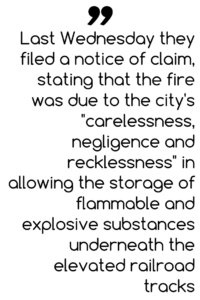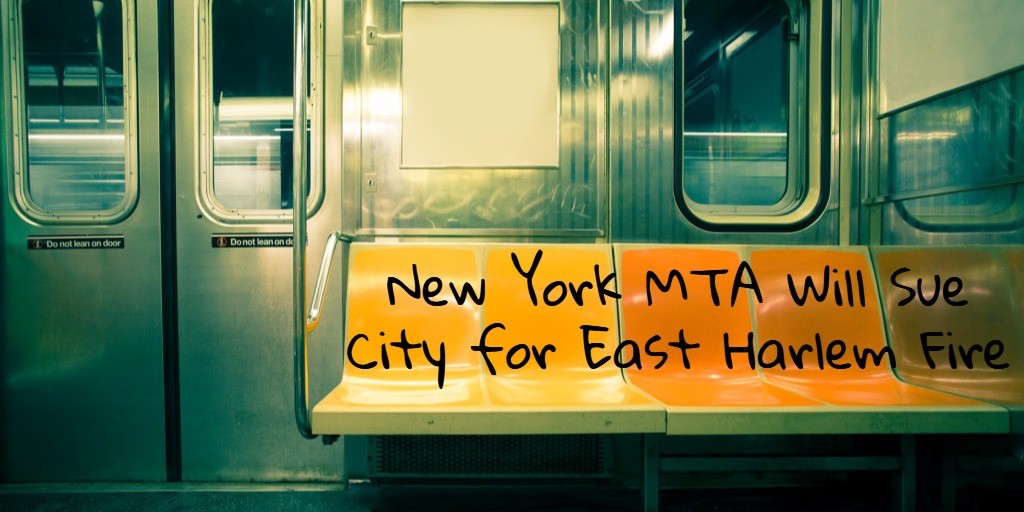A neighborhood plant nursery, a place to pick up soil for windowsill herb gardens or some potted plants to give as a housewarming gift, hardly seems the sort of place likely to house the materials capable of creating an explosive situation, but on May 17, the Urban Garden Center in East Harlem turned out to be combustible. Workers mistakenly poured gasoline onto a generator, causing the lot, which the garden center used to store materials that included flammable fertilizer and wood pallets, to be quickly engulfed in flames. The four alarm fire occurred directly underneath Metro-North train tracks, severely disrupting service to three lines: the Hudson, Harlem and New Haven, all of which run out of Grand Central Station to points north.
 While no one was injured, the fire left between 30,000-40,000 commuters stranded in Grand Central on that Tuesday evening, as the MTA worked through the night to try and make enough repairs to allow for limited service for the morning commute on the following Wednesday. In the end, serious structural damage led to major delays and disruptions for a few days for the tens of thousands of people who use those lines during each weekday commute. Now, the MTA has warned that they will file a lawsuit against the city of New York.
While no one was injured, the fire left between 30,000-40,000 commuters stranded in Grand Central on that Tuesday evening, as the MTA worked through the night to try and make enough repairs to allow for limited service for the morning commute on the following Wednesday. In the end, serious structural damage led to major delays and disruptions for a few days for the tens of thousands of people who use those lines during each weekday commute. Now, the MTA has warned that they will file a lawsuit against the city of New York.
Last Wednesday they filed a notice of claim, stating that the fire was due to the city’s “carelessness, negligence and recklessness” in allowing the storage of flammable and explosive substances underneath the elevated railroad tracks. Soon after the accident, Urban Garden Center, was served with four summonses for its storage of gas and propane and an illegal generator. They have since renegotiated their lease and remain open on the same land, which is owned by the Economic Development Corporation of the city, which has also been specifically named in the suit. While the MTA has not commented on the exact amount of damages it will seek in its suit, it has said that it is looking to recoup the lost income from the period of time when the trains were not running, or running at diminished capacity, as well as the cost of repairs to the tracks from the fire.
Both David Mayer, the MTA’s chief safety officer, and a spokesman for the mayor’s office have both stated that in the wake of the fire, an office has been set up to monitor and regulate safety measures regarding the property underneath the train tracks.


